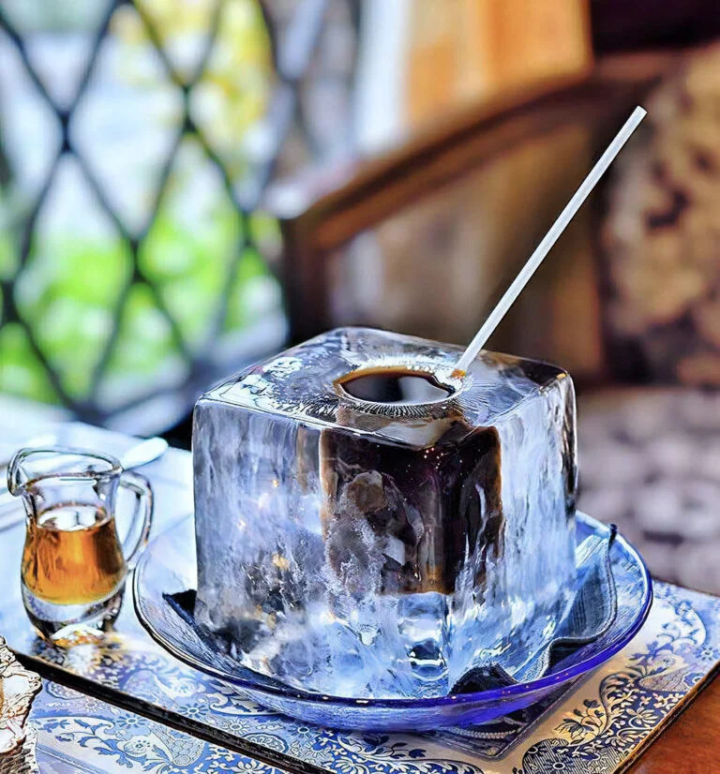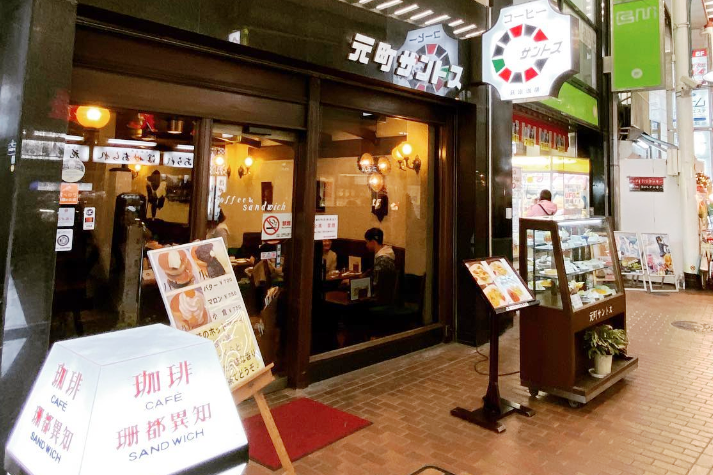Step into the Past: Retro Cafe Time Travel in Kobe
- HBCC
- Jun 9, 2025
- 3 min read
Seattle and Kobe have something in common in addition to being a sister-state; a rich history of coffee culture. As someone living in Seattle for three and half years, I have come to take it for granted to see an extensive line of Seattleites in the morning before work/school. Kobe, however, is not as inferior as Seattle’s coffee culture. Since Kobe opened the port in the 1860s, Kobe has been importing a variety of Western merchandise such as attires and Western architectural styles. Of many imports from Western countries, a coffee bean allegedly significantly impacted the origin of coffee culture in Kobe and thus it developed many Kissaten, a coffee and cigar shop, in Kobe.
Hokodo Coffee/ 放香堂加琲
From the time it opened in the 1840s, Hokodo Coffee displayed “Indian Coffee” as the very first coffee beans ground was the one from India, British Raj. Inside is a picture hanging on a wall that depicts what business looked like during the Meiji period. Hokodo Coffee is renowned for being the first coffee shop in Japan that served coffee and for Rintaro, 麟太郎, a cup of coffee roasted and ground by a stone mortar. It is palatable with well-balanced bitterness and sourness from freshly roasted coffee beans. The best combo with the Indian coffee is a Danish thick-sliced toast with butter and sweet red bean paste on top.
Nishimura Coffee/ 北野にしむら珈琲店
The first member-only cafe in Japan. A theater-lover founded this cafe and therefore it is said that the founder invited members of people who have a deep tie with theater and movies such as Miwa Akihiro and Shinobu Otake, and other celebrities from different fields. The cafe, however, was opened to the public in 1995 when the Great Hanshin-Awaji Earthquake occurred. The popular menu is an iced coffee served in a hollowed-out ice cube (only in summer)
Evian Coffee Shop/ エヴィアンコーヒー
The first siphon/vacuum coffee maker used cafe in Japan. Evian has been in business for over 70 years by a founder who used to work in trading a wealth of information about coffee. Inside the shop is constantly filled with a well-balanced coffee aroma from a siphon and is united with striking dark-green chairs from Kobe Furniture. Highly recommended foods are an Egg sandwich and Tiramisu, which goes perfectly with the coffee. A strong acidity spreads into a month once you take a sip of a coffee, and after it goes down your throat the aroma escapes through your nose, leaving a refreshing taste. The slight sweetness and freshness of the egg sandwich make an amazing harmony with the bitterness of the coffee. It is obvious that tiramisu perfectly matches coffee.
Motomachi Santos/ 元町サントス
Open in 1960, Motomachi Santos remains a nostalgic time capsule of the Showa-era. Located within the historic Kobe Motomachi Shopping Street which spans 1.2 km (nearly 1 mile) and boasts over 140 years of history, the cafe exudes retro charm. While their signature menu is the teppanyaki-style pancake, I recommend trying their traditional Japanese dessert Anmitsu, or "Mitsumame-topped Ice Cream with Fruits", especially for the summer season. To complement it, the floats don't miss their beautifully colored "Cream Soda" floats, which feature stunning gradient hues and are a must-order!
Fruit Mixed Juice/ ミックスジュース
Speaking of Kissaten, there is my signature drink that I always take: Fruit Mixed Juice. Every retro coffee store serves fruit mixed juice as of now around Japan, and people from all generations love the beverage whatsoever.

The origin of fruit mixed juice is from Osaka. Ichiro Tsunekawa, an owner of a fruit shop in Osaka in 1950, produced a solution to turn them into juice for fruits that are too ripe to be for sale. Taking advantage of the maximized sweetness of such ripped fruits, he added it to his coffee shop's menu. Then the fruit juice craze caught on among people in Osaka and wound up being the adored drink for a long time in Japan.
Kissaten is like a magical room for relaxation that expresses the taste, love, and atmosphere back in time with a cup of coffee to the present day. No matter how unique the styles are, there is no change in the aromas that hold your body as you enter a cafe as a living heritage endlessly beloved by the locals 200 years ago. If you have a chance to visit Hyogo, why don’t you take a step at such a retro-modern cafe that gives you a blow of nostalgia through your mind?
Written by:
Rio Takahashi
A student from Osaka, and a recent graduate of Seattle Central College.




























